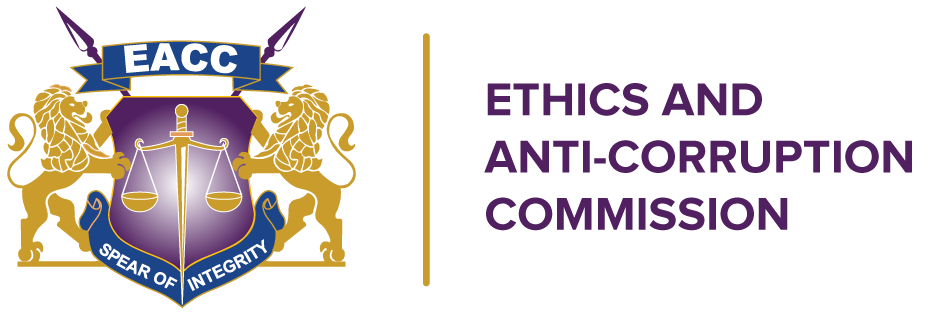Frequently Asked Questions
Share this page
It is a serious offence for an officer of the Commission to engage in any form of corruption. The Commission has put in place various mechanisms to ensure that staff uphold integrity at all times. These mechanisms include a continuous vetting program for all employees and implementation of a proactive Integrity Testing Programme. In addition, any allegations of such offences are expeditiously investigated and disciplinary action taken including prosecution. Any wayward officers suspected to be engaging in corrupt conduct or other unethical practices should be reported to the Commission promptly. Such reports are treated with utmost confidentiality.
Yes. The Commission has encountered such incidences where some people posing as officers of the Commission defraud unsuspecting members of the public purporting to be investigating corruption. Members of the public are advised to verify the identity of such persons from the nearest Commission office, seek assistance from the nearest police station or better still call 0729888881/2/3 and ask to speak to the Head of Investigations.
Yes. It is possible to report corruption to EACC anonymously. The Commission has a web-based reporting system known as the Business Keeper Monitoring System (BKMS) that guarantees a completely secure and anonymous reporting process. This system ensures that a person’s identity as a whistle blower is hidden and that their report remains confidential and can only be accessed by EACC. To report using this system, visit the EACC website (www.eacc.go.ke).
Yes. Under the Witness Protection Act, 2006, witnesses who have given or agreed to give evidence during the prosecution of corruption cases who face potential risk are protected by law. Such protection is offered through the Witness Protection Agency (WPA).
Yes. Any person who assists EACC with information regarding corruption or economic crime is protected by the law. Section 65 of the Anti-Corruption and Economic Crimes Act protects informers who may assist the Commission or an investigator in dealing with corruption offences or economic crimes. No action or proceedings may be taken against informers or other persons for their assistance to the Commission as long as the persons believe the information to be true.
Yes. Under Section 67 of the Anti-Corruption and Economic Crimes Act, a Kenyan national may be brought before Kenyan courts for corruption offences or economic crimes committed in a foreign country if the conduct in question would amount to corruption or economic crime had it taken place in Kenya.
In addition, a Kenyan who commits an economic crime and flees to a foreign country remains liable for prosecution before Kenyan courts.
No. The power to prosecute criminal corruption cases is with the Office of the Director of Public Prosecutions (ODPP). The existing legal framework does not give the Commission the power to prosecute criminal cases. The Commission investigates cases that fall within its mandate and makes recommendations to the Director of Public Prosecutions for appropriate action. However, regarding civil cases relating to corruptly acquired assets, EACC has powers to file cases in court for recovery of such assets.
How does EACC work with other agencies?EACC works with other agencies through national and international networks, signing of Memoranda of Understanding (MOUs), Mutual Legal Assistance (MLA) requests, Huduma Centres, Integrated Public Complaints Referral Mechanism (IPCRM) among other inter-agency mechanisms. This is done through sharing of information, operational support, professional opinions etc.
Yes. In the performance of its functions, EACC is required by law to cooperate and collaborate with other agencies. Some of these agencies include the Public Procurement Regulatory Authority, Performance Contracting Department, Controller of Budget, Office of the Auditor General, the Judiciary, National Police Service, Efficiency Monitoring Unit, the Office of the Attorney General and the Department of Justice, Kenya Revenue Authority, Parliament, the National Anti-Corruption Campaign Steering Committee, Commission on Administrative Justice, Office of the Director of Public Prosecutions, National Land Commission among others.
EACC also partners with professional associations, the private sector, religious organizations, the media, and the civil society locally and internationally.Under the Multi-Agency Taskforce (MAT) EACC collaborates with agencies such as DCI, DPP, KRA among others.
The Commission has its Headquarters at Integrity Centre along Jakaya Kiwete/Valley Road Junction in Nairobi. It also has eleven regional offices in Mombasa, Kisumu, Nyeri, Garissa, Eldoret, Isiolo, Nyeri, Kisii, Nakuru, Machakos and Bungoma. EACC also has representatives (EACC Huduma Desk) in Huduma Centres countrywide.
Not found what you were looking for?
Write to us or call us on our toll free number
